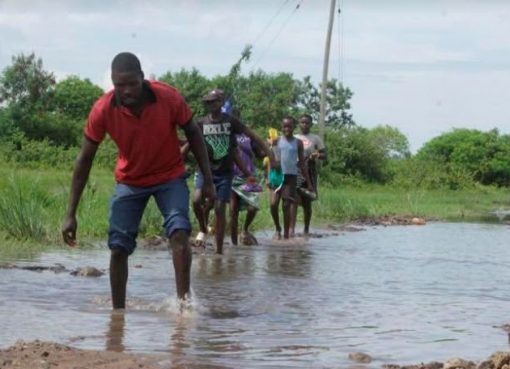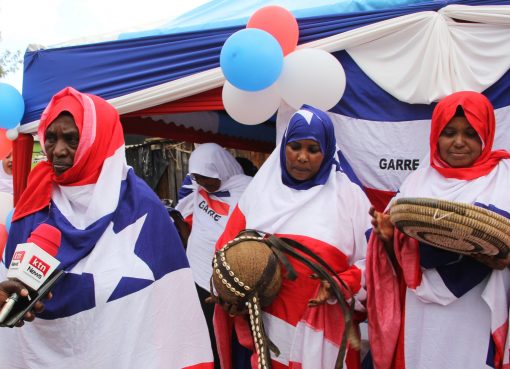Dennis’ voice and confidence are his most outstanding characteristics; being in a wheelchair for more than 10 years has made him chin up as he sings and hawks his wares in Nairobi town.
24-year-old Dennis Nthuli from Athi River is an aspiring gospel artist currently hawking in his wheelchair to provide for his daily needs.
He narrates to KNA how his life has been and the challenges he has gone through to be where he is now.
Nthuli was born on the 1st of June 1997 to a humble family in Mwala Sub-county within Machakos County.
He says his childhood memories are riddled with sickness and isolation since most of his friends and family were not aware of his condition.
“As a child, it was hard for me to understand why my parents didn’t want me playing with the other children and I felt so sad and lonely,” said Nthuli.
As he later came to understand, Nthuli suffered from Calcium Deficiency Syndrome, which is the lack of calcium in the body that causes the bones in a child to weaken and even sometimes break prematurely.
“I would always get hurt every time I went out to play with my friends,” added Nthuli as he spoke about his situation.
Even though his legs looked as feeble as a child’s as he sat in his wheelchair, nothing about his willpower and personality was feeble.
Though he showed humility, he kept his chin up when he spoke and was not afraid to share his struggles.
Nthuli started singing as a way of consolation and comfort to others too when he was a teenager and he has always dreamt of getting to be a cherished gospel artist in the country as he seeks for financial help from well-wishers.
“The songs I write are just a way to express myself and also hopefully reach someone out there who might be going through the same situation,” Nthuli said.

He handed out a copy of his music and the graphic design on the disktop was well done, which implied that Dennis had gone the extra mile of maintaining standard quality for his art and that alone said a lot about the man.
Being a high school graduate, Nthuli’s parents did not have the money to take him for further studies but that did not deter him from his long-term dream of singing and performing.
He says that he is glad about the reception he has received so far, from friends, fellow PWDs, family and well-wishers and added if given the opportunity he would one day like to form his own band.
Nthuli requests the government or the National Council for People with Disability to help him with college fees for music school to expand his knowledge and skills to start a band.
He appreciates the government embracing people with disabilities because he believes his interests will be best considered by a leader who is also disabled.
“It takes one with the experience of disability to truly understand our needs,” added Dennis.
When the sun sets, and everyone in town is rushing home to avoid the chaotic traffic in Nairobi, Dennis does not let his disability slow him down, he packs up his remaining goods into a carton box then diligently into a bag.
He bids us bye as we wish him well then straps his bag to the back of his government-issued wheelchair and cycle home.
It is important to note that marginalization, stigma and discrimination against persons with disability have been going on for many years. This is largely because many societies perceive it to be taboo or a bad omen.
This means there is still a lot of work to be done to deconstruct the notions and also increase equal opportunities for people with disabilities across the world.
Yesterday being International Albinism Awareness Day and the theme being “Strength Beyond All Odds”, in tribute to persons with albinisms across the world, it also reflects on all persons with disability to remain strong despite the challenges they face and express solidarity as they battle the Global Covid-19 pandemic.
European Union Vice President, Josep Borrell, yesterday, while celebrating International Albinism Awareness Day, said the EU reaffirms its strong commitment to fight for the respect of fundamental human rights of persons with albinism, underlining the importance of their empowerment in full, equal and meaningful participation in all spheres of life.
By Ann Kangero and Jack Odongo





